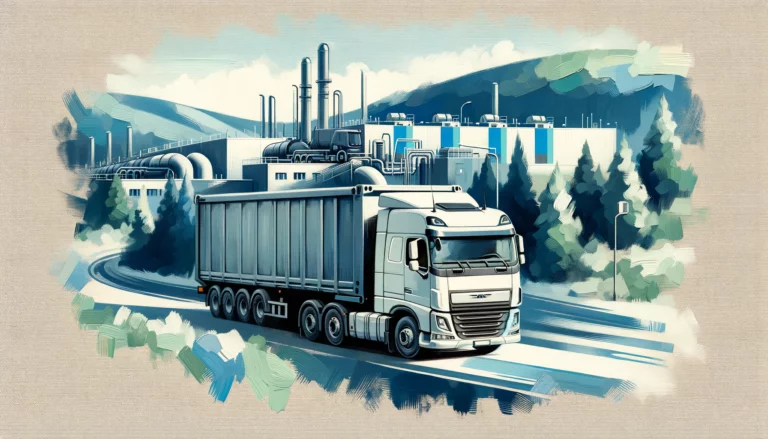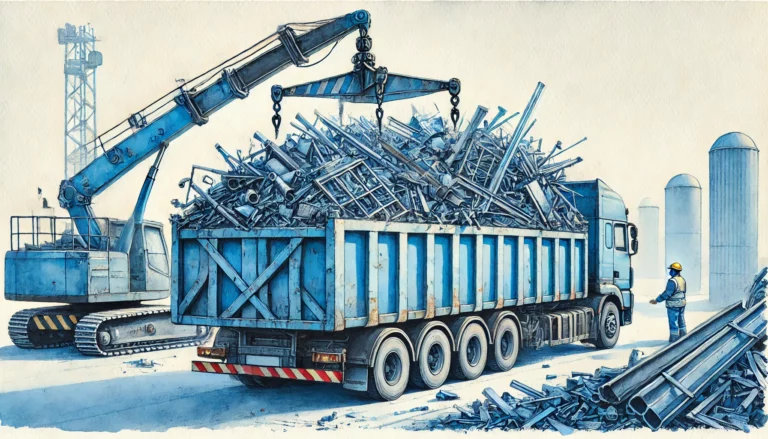Key benefits of waste transport permits for carriers
Waste management is a complex industry in Europe. One of its critical components is the secure and compliant transport of waste. Whether hazardous, recyclable, or general, waste materials require specialized handling to ensure public safety and environmental protection. But to operate legally and responsibly, transport companies in the waste industry must secure a waste transport licence.
Need more information regarding waste transport permits? Contact us:
office@wastetransportsolutions.eu
Holding waste transport permits ensures legal compliance. It also provides companies with numerous operational, reputational, and financial benefits. In this guide, we explore the key advantages for companies that become licensed waste carriers. Then we outline why obtaining such licence is a valuable investment.
What are waste transport permits?
A waste transport permit is an authorization granted by regulatory authorities allowing company to legally transport various types of waste. These documents are part of European Union regulations aimed at protecting the environment and public health by establishing standards for waste handling and movement. Transport licences specify requirements for waste types, volumes, safety protocols, and documentation that must accompany each shipment.
In many EU countries, securing a waste transport licence is mandatory for companies handling large volumes of waste. Failure to secure a licence can result in substantial fines, suspensions, or even criminal charges, especially for high-risk waste like hazardous or industrial materials.
Why waste licensing matters for transport companies
A waste transport licence is not merely a regulatory requirement; it’s an assurance of a company’s commitment to safety, environmental responsibility, and public health. For companies in the waste sector, licensing plays a crucial role in legal compliance, environmental stewardship, and overall business credibility.
1. Legal obligations and compliance
Operating without a waste transport permits can lead to heavy penalties and reputational harm. In Europe, waste carriers must adhere to both national laws and EU waste transport directives. Both of which impose strict standards on waste documentation, handling, and movement. A licence certifies that the company has met these legal standards, reducing the risk of fines and suspensions.
2. Enhancing environmental responsibility
Waste transport licences underscore a company’s dedication to environmentally sound practices. By securing a licence, companies demonstrate that they are committed to following strict safety and environmental regulations, which benefits their communities and the planet. Licensed companies are better equipped to handle waste safely, minimizing potential risks to ecosystems and human health.

Key advantages of obtaining waste transport permits for various countries
Holding a waste transport licence provides more than just regulatory protection. Here are some of the major benefits companies can experience:
1. Access to new market opportunities
With a licence, waste carriers can legally operate across a broader market, including international routes and specialized sectors like hazardous waste transport. This expanded access enables companies to tap into new revenue streams and secure more contracts, especially those requiring licensed carriers. Without a licence, companies are limited to local markets, losing out on profitable opportunities in the expanding waste management industry.
2. Competitive advantage and credibility
Undoubtedly, a licence signifies professionalism and competence, offering companies a competitive edge. Many clients prefer working with licensed carriers due to the added assurance of safety and regulatory compliance. By demonstrating this commitment, companies build trust and loyalty among their clients, giving them an advantage in a competitive market.
3. Operational benefits and cost savings
Licensed waste carriers benefit from streamlined operations, as licensing often comes with standardized protocols and employee training that improve handling and reduce the risk of accidents. Complying with these protocols means fewer penalties, minimizing financial risks, and avoiding costly disruptions. Additionally, licensed companies are often well-prepared to respond to regulatory audits and inspections, saving time and resources over the long term.
4. Improved reputation and brand image
A waste transport licence definitely enhances a company’s image by reflecting its commitment to safety, legality, and environmental protection. This positive reputation attracts environmentally conscious clients and helps establish the business as a reliable industry leader. Companies with strong compliance records enjoy higher customer satisfaction and loyalty, strengthening their brand over time.
5. Eligibility for government contracts and incentives
Many government contracts and public-sector projects mandate licensed carriers for waste transport, as these projects prioritize safety and compliance. Licensed companies also qualify for green grants and incentives, which can reduce operational costs and increase profit margins. Government support for licensed transporters is part of the EU’s commitment to sustainable waste management, making this a profitable advantage for licensed companies.
6. Higher standards and employee training
Waste transport licensing often includes training requirements for drivers and handlers, ensuring that employees are knowledgeable about safe waste handling practices. This training minimizes accidents and mishaps, creating a safer working environment. Additionally, trained employees are better equipped to handle complex waste materials. This improves efficiency and protect both company assets and the environment.

Financial implications
Investing in a waste transport licence requires upfront costs, but the benefits provide a valuable return on investment. Here’s how:
Cost of acquiring and maintaining waste transport permits
Securing a waste transport licence involves an initial application fee, which varies by country, as well as costs related to training, documentation, and compliance protocols. While the licensing and maintenance costs may seem high, the long-term benefits far outweigh these expenses, especially when considering the potential gains in revenue and market access.
Fines and penalties for unlicensed transport
Without a doubt, operating without a licence can be far more costly than the licensing fees. Companies found transporting waste without proper authorisation face steep fines, suspension of operations, and, in extreme cases, criminal charges. Licensed companies avoid these risks, protecting both their finances and their reputation. Non-compliance penalties often exceed the cost of licensing, making it financially prudent to secure a licence.
How to obtain a waste transport licence
For companies considering licensure, understanding the application process is essential.
Frequently Asked Questions
Licensed companies gain legal protection, access to new markets, cost savings, and enhanced reputation. Additionally, since waste transport is fraught with risk, it’s also more profitable.
Yes, waste licences are required across the EU, though specific requirements vary by country. For some countries, like Poland, a simple registration in the national waste carrier register will be sufficient. In others – like Italy – before sending an application you must first prepare documents in a specific way and send them to an Italian representative. He’ll apply for a permit in your stead and will inform you about any changes to the registration procedure. We know how time-consuming such registration can be so we can help you get through it without any hassle.
Companies without waste transport permits face fines, operational suspensions, and possible legal action, particularly for hazardous waste. But the severity and the scope of the countermeasure used agains the company depends on the country where the lack of necessary permit was revealed.
Licensing can take several days, weeks or even a few months, depending on the complexity of the application and necessary training.
Licences specify certain waste types. In some cases you can either transport only non-hazardous waste or only hazardous waste. In other instances you’ll have to pick the waste codes yourself. But if you decide to deliver waste not mentioned on your permit, you’ll face severe consequences.
Conclusion
Obtaining a waste transport licence is a vital step for companies looking to succeed in the European waste industry. Beyond compliance, a licence opens doors to new market opportunities, establishes credibility, reduces risks, and strengthens brand reputation. For companies committed to safe, responsible, and sustainable waste transport, licensing is not just a legal requirement but a worthwhile investment that promises long-term rewards.







